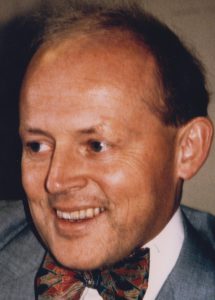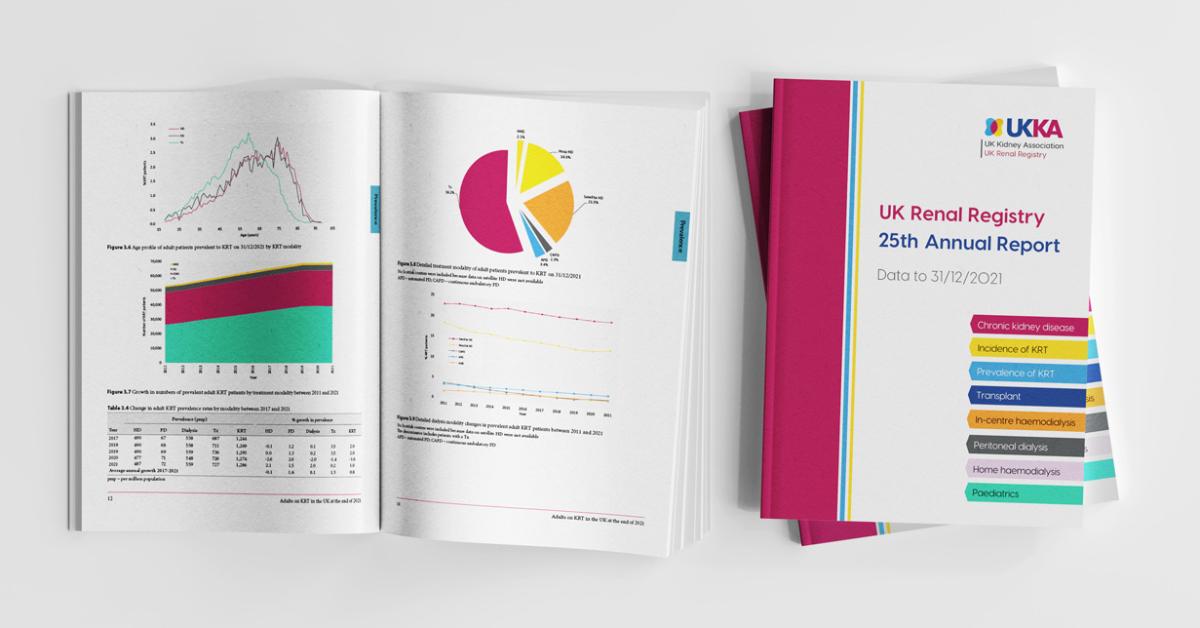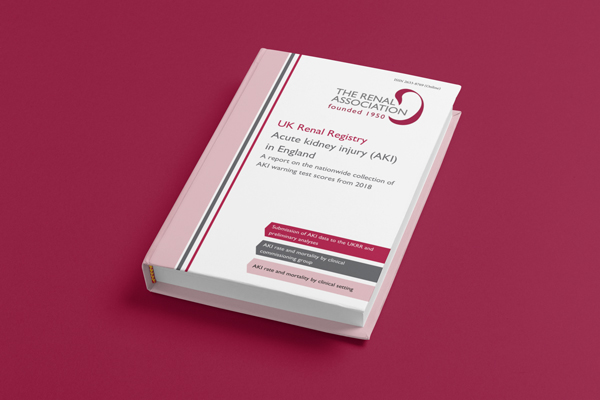
Michael Winterborn was born in Oslo, the son of Colonel Thomas Hugh Winterborn CBE, Royal Signals Regiment. He was educated at Stoneyhurst and graduated in medicine from St Mary’s Hospital, University of London. His first house physician post was in paediatrics but, like all paediatric trainees of that period, he had to pass the membership examination of the College in general medicine. The need for suitable experience took him to the Institute of Urology in 1965 and it was there as a senior house officer on the metabolic unit, under the influence of A M (Joe) Joekes, that he first developed an interest in the kidney.
On returning to paediatrics he studied the effects of obstruction on the developing human kidney, using microdissection as a tool and he completed his basic paediatric training as a registrar at the Queen Elizabeth Hospital, Hackney. Moving to Birmingham in 1970 as a locum registrar, he was soon appointed a senior registrar and served on the renal firm at the Childrens Hospital. Paediatric nephrology was at that time still in its infancy in the UK. The renal firm at the Children’s Hospital was in the hands of a single consultant, whose appointment was as a general paediatrician and, while an occasional older child underwent transplantation, it was without the support of dialysis. Nevertheless, Michael fitted comfortably into this scene, contributing selflessly to patient care which necessitated a good deal of night and weekend duty.
Twenty years ago it required courage to embark on a career in a paediatric specialty for the prospects did not seem promising, but fortunately Michael had a belief in the future of paediatric nephrology – and in himself. In 1973 he went as a trainee research fellow to the Albert Einstein College of Medicine, New York, under Henry Barnett. He returned, two years later, a fully trained paediatric nephrologist with a good research background; equally importantly he established many lasting friendships, not only with Americans but also with some now notable European paediatric nephrologists who were studying there at the same time.
In 1975 he was appointed consultant paediatrician at East Birmingham Hospital, with a brief to establish a dialysis service for children in the West Midlands. But conflict between the area and regional health authorities denied him the necessary capital and it was not until late 1976, when the media exposed the reality that children were dying needlessly, that a fund raising campaign was started by the Lions International. Michael was deeply involved in the planning and when the new unit was opened on 9 October 1979 he at last found a role in which he could assert his independence and leadership.
He gradually built up a multidisciplinary team who delivered a service of a quality acknowledged to be one of the best in the country. In addition to a heavy clinical load, Michael engaged in many other professional activities. He played a full part in hospital affairs and undertook the arduous task of chairing the regional advisory committee on paediatric senior registrars as well as serving for many years on the regional advisory committee on renal services, and later on the DHSS (now DOH) advisory panel on dialysis equipment. He was a founder member of the British Association for Paediatric Nephrology and served as its secretary from 1980-84.
In 1982 he was elected to the council of the European Society for Paediatric Nephrology. He continued his service as secretary to the British Association while also being an assistant Secretary to the International Paediatric Nephrology Association. He used his influence in these organizations to promote opportunities for young trainees from developing countries, and the former Soviet Union, to travel to the west. In 1991 the College appointed him an examiner for the membership but illness prevented his active participation.
Time for research was necessarily limited, but he developed a special interest in renal tubular disorders and cystinosis. His top priority was always loyalty to his patients and parents, for whom he acted not only as a nephrologist but also as a general paediatrician and wise counsellor. His perception of successful treatment embraced not merely the preservation of life but also the achievement of a life of quality; with this in view he and his team took their patients on adventure holidays in the English countryside and abroad, encouraging them to relinquish their dependence on parents.
Sadly there was a price to be paid for the physical and emotional stress of all these activities; his marriage in 1967 to Penny Stephenson, the daughter of a former consultant thoracic surgeon at East Birmingham Hospital, which was blessed with two sons, was dissolved after 17 years.
Michael was a fun lover and an imaginative raconteur, who improvised on his fairy tales – sometimes a trifle gruesome – to entertain his patients while probing their lumbar regions with a biopsy needle. He was always jovial despite learning that he had leukaemia some three years before he died. He had a catholic taste in music and was a lover of opera. He was also a keen and competent sportsman, enjoying squash, sailing, swimming and skiing. His abiding joy was to climb mountains, including the Himalayas, where he took part in studies of the effect of high altitude on vascular physiology as a member of the Birmingham Medical Research Expeditionary Society. He was to have made another trip to Nepal only a month before he died. He fought the lymphoma that complicated his illness with remarkable courage, undergoing repeated courses of chemotherapy as well as a bone marrow transplant. He married Mary Waldron, a former senior registrar, in a private ceremony by his bedside the day before he died. His sons, from his first marriage, survived him.
In the short time that Michael Winterborn was able to work in the new dialysis unit, erected on the Children’s Hospital site in December 1992, he made substantial contributions and the staff renamed the dialysis service after him as a permanent memorial to his endeavours for children in the West Midlands.



